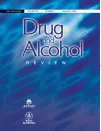| Titre : | Adolescents drink less: How, who and why? A review of the recent research literature (2018) |
| Auteurs : | H. PAPE ; I. ROSSOW ; G. S. BRUNBORG |
| Type de document : | Article : Périodique |
| Dans : | Drug and Alcohol Review (Vol.37, Suppl.1, April 2018) |
| Article en page(s) : | S98-S114 |
| Langues: | Anglais |
| Discipline : | EPI (Epidémiologie / Epidemiology) |
| Mots-clés : |
Thésaurus mots-clés ADOLESCENT ; ALCOOL ; EVOLUTION ; PREVALENCE ; REDUCTION DE CONSOMMATION ; HBSC ; ESPADThésaurus géographique INTERNATIONAL |
| Résumé : |
ISSUES: Today's teenagers have been described as a sober generation and we asked: 'What is known about the recent decline in youth drinking?'
APPROACH: A literature review (2005-2017). KEY FINDINGS: Research from wealthier parts of the world provides solid evidence of less alcohol use by youth since the millennium shift. Some studies show that this is reflected at all levels of consumption, but there are also indications that the heaviest drinkers have not reduced their drinking. The decrease is predominately seen in underage youth, and has been larger for boys than for girls in several countries. Teenagers across social strata drink less, but some disadvantaged subgroups have not followed the downward trend. Underage drinkers have apparently not become a more deviant group as the prevalence of drinking has dropped, indicating no hardening of the group. The major gap in the literature pertains to the issue of underlying driving forces. We found no evidence in support of the widespread assumption that the digital revolution has been of importance. A decline in parenting practices that are conductive to underage drinking has occurred in several countries, but studies examining whether these changes have contributed to less alcohol use by youth are almost non-existent. IMPLICATIONS: To inform alcohol policy and prevention, it is imperative to find out why teenage drinking has decreased in a fairly consistent way across numerous countries. CONCLUSION: Future research into the issue of falling prevalence rates of youth drinking should focus on possible explanatory factors at the population level rather than at the individual level. |
| Domaine : | Alcool / Alcohol |
| Sous-type de document : | Revue de la littérature / Literature review |
| Refs biblio. : | 118 |
| Affiliation : | Norwegian Institute of Public Health, Oslo, Norway |
 Accueil
Accueil



